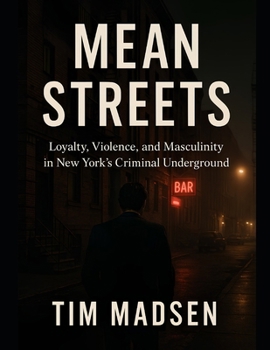Mean Streets: Loyalty, Violence, and Masculinity in New York's Criminal Underground
Mean Streets: Loyalty, Violence, and Masculinity in New York's Criminal Underground is a powerful and incisive examination of Martin Scorsese's landmark 1973 film Mean Streets, exploring the complex psychological, cultural, and spiritual dimensions beneath its gritty surface.
Blending film criticism, cultural analysis, and historical context, this ten-part study delves deep into the world of Charlie, Johnny Boy, and the narrow, volatile streets of Little Italy-where friendship is fragile, manhood is a performance, and redemption is always just out of reach. From Catholic guilt to toxic masculinity, from the economy of street-level crime to the aesthetic innovations that shaped a generation of filmmakers, this book unpacks how Mean Streets redefined American cinema and continues to resonate as a raw confession of identity and crisis.
For students, scholars, cinephiles, and anyone fascinated by the intersection of film, morality, and culture, this is more than a book about a movie-it's a portrait of a world where violence is ritual, loyalty is law, and salvation is paid for in silence.





